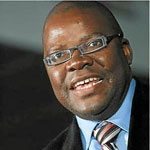
AMERICAN economist turned social theorist, Thomas Sowell once said no one will really understand politics until they understand that politicians are not trying to solve our problems.
BY NDAMU SANDU
“They are trying to solve their own problems — of which getting elected and re-elected are number one and two. Whatever is number three is far behind,” he said.
Across the Atlantic and in a country called Zimbabwe, his observations ring true as the leaders are immersed in politics while the economy implodes.
The economy has tanked with prices of basic commodities having doubled in three months.
Government has responded by setting up a price monitoring team, which is akin to the introduction of price controls — a move that failed a decade ago.
The bond note, which was introduced last November, is depreciating against the greenback despite monetary authorities’ insistence that it is at par with the dollar.
The foreign currency crisis is worsening as reflected in rising premiums on real time gross settlement and cash despite efforts by the central bank to massage the problem.
- Chamisa under fire over US$120K donation
- Mavhunga puts DeMbare into Chibuku quarterfinals
- Pension funds bet on Cabora Bassa oilfields
- Councils defy govt fire tender directive
Keep Reading
The dollar now attracts a premium of 80% using real time gross settlement and 45% using bond notes.
Despite priority given to the importation of raw materials in the allocation of foreign currency, banks are struggling to keep pace with increased demand.
This has forced companies to turn to the black market for foreign currency, which comes at a cost. They are then forced to pass on the costs to consumers.
These developments would have jolted any government into action, but not the ruling Zanu PF, which has embarked on a “cleansing” exercise to weed out opposition to President Robert Mugabe’s rule.
Mugabe has addressed nine youth interface rallies where party supporters extolled his name.
The rallies have degenerated into a platform in which the soon to be 94-year-old ruler attacks rivals — real and perceived — in a bid to consolidate his grip on power.
The economy is completely forgotten, with the one centre of power becoming the tagline at the rallies.
“It’s a dog’s breakfast. The people no longer matter. There is no agenda of the people but individuals to capture power. It’s all about power,” said economist Godfrey Kanyenze.
Last week, Finance and Economic Development minister Ignatious Chombo projected the widening of the budget deficit to $1,8 billion as government continues eating what it has not killed. Zimbabwe incurred a $1,4 billion budget deficit in 2016. Kanyenze warned that rising expenditure would continue in the run up to next year’s elections.
“The fiscus is shambolic and the budget deficit is rising even further to $1,8 billion from $400 million,” he said. “It tells you that with elections forthcoming, the reins will be thrown away; there won’t be any reining of runaway expenditure.”
The government has been financing the budget deficit through borrowing from the domestic market.
The domestic debt was $4 billion as of June 30. Kanyenze said the debt was coming back with a vengeance having been wiped away by hyperinflation.
“Since 2013, they [government] let go of the reins, no real attempt to rein in expenditure. We have gone back to that philosophy that money grows on trees. We don’t have to worry about it,” he said.
Former Finance minister Tendai Biti said the economy had tanked due to incompetence.
“The economy is dead not because of infighting but because Zanu PF is incompetent; nobody trusts Zanu PF and there is a crisis of confidence. The economic collapse is not a by-product of infighting. Infighting just exacerbates the fact that you can’t trust them,” he told Standardbusiness last week.
In his state of the economy address made last month, Biti warned of government’s insatiable appetite for spending, which he said would continue while the fiscal space shrinks.
“…this government has exhausted the capacity of domestic resource mobilisation as no one is prepared to accept treasury bills anymore. In this situation, we view the return of the Zimbabwe dollar as inevitable,” he said.
Biti said the expansive fiscal policy resulted in massive fiscal imbalances, which have been financed through domestic borrowing. “This fiscal cannibalism massively curtailed net capital flows into the country and corroded dollar bank deposits, resulting in massive cash shortages and a liquidity crisis,” he said.











